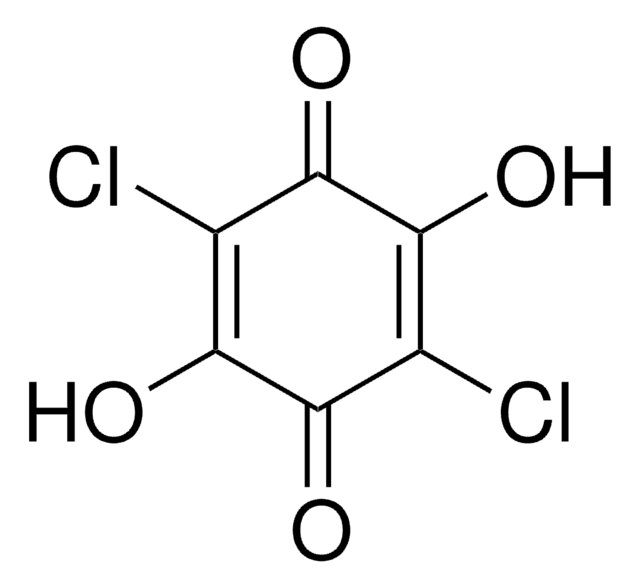All Photos(1)
About This Item
Linear Formula:
C6H10(=NOH)
CAS Number:
Molecular Weight:
113.16
Beilstein:
1616769
EC Number:
MDL number:
UNSPSC Code:
12352100
PubChem Substance ID:
NACRES:
NA.22
Recommended Products
Assay
97%
form
crystals
bp
206-210 °C (lit.)
mp
86-89 °C (lit.)
SMILES string
O\N=C1/CCCCC1
InChI
1S/C6H11NO/c8-7-6-4-2-1-3-5-6/h8H,1-5H2
InChI key
VEZUQRBDRNJBJY-UHFFFAOYSA-N
Looking for similar products? Visit Product Comparison Guide
Signal Word
Warning
Hazard Statements
Precautionary Statements
Hazard Classifications
Acute Tox. 4 Oral
Storage Class Code
11 - Combustible Solids
WGK
WGK 1
Flash Point(F)
Not applicable
Flash Point(C)
Not applicable
Personal Protective Equipment
dust mask type N95 (US), Eyeshields, Gloves
Certificates of Analysis (COA)
Search for Certificates of Analysis (COA) by entering the products Lot/Batch Number. Lot and Batch Numbers can be found on a product’s label following the words ‘Lot’ or ‘Batch’.
Already Own This Product?
Find documentation for the products that you have recently purchased in the Document Library.
Customers Also Viewed
S Ramalingam et al.
Spectrochimica acta. Part A, Molecular and biomolecular spectroscopy, 96, 207-220 (2012-06-12)
In the present analysis, FT-IR/FT-Raman spectra of the cyclohexanone oxime (CHO, C(6)H(11)NO) are recorded. The observed vibrational frequencies are assigned and the computational calculations are carried out by HF and DFT (B3LYP and B3PW91) methods with 6-311++G(d,p) basis set and
Moa Andresen Bergström et al.
Journal of medicinal chemistry, 51(8), 2541-2550 (2008-03-29)
Metabolic activation of chemicals (prohaptens) in the skin can cause allergic contact dermatitis. We have explored structure-allergenic activity relationships for seven potential oxime prohaptens using the local lymph node assay and a GSH trapping screen with liver microsomes. The general
M J Derelanko et al.
Fundamental and applied toxicology : official journal of the Society of Toxicology, 5(1), 117-127 (1985-02-01)
Cyclohexanone oxime (CHO) was given po to male and female Fischer 344 rats at dose levels of 10, 25, 75, 150, and 300 mg/kg, five times a week for a period of 2 weeks. Control animals received distilled water. All
Shelli J Schomaker et al.
Toxicology and applied pharmacology, 185(1), 48-54 (2002-12-04)
The purpose of these studies was to evaluate bone marrow from male CD rats following exposure to known hematotoxins using flow cytometry (FC) and a monoclonal antibody to the cell surface antigen CD71. Rats were treated with either CHO (300
Wen-Cui Li et al.
Journal of the American Chemical Society, 127(36), 12595-12600 (2005-09-08)
In this study, we present a synthetic pathway for the fabrication of self-supporting zeolite monoliths consisting of crystallized nanoparticles. A resorcinol-formaldehyde-based organic aerogel is used as a template, and silicalite-1 is used as the zeolite example. The silicalite-1 monoliths obtained
Our team of scientists has experience in all areas of research including Life Science, Material Science, Chemical Synthesis, Chromatography, Analytical and many others.
Contact Technical Service












